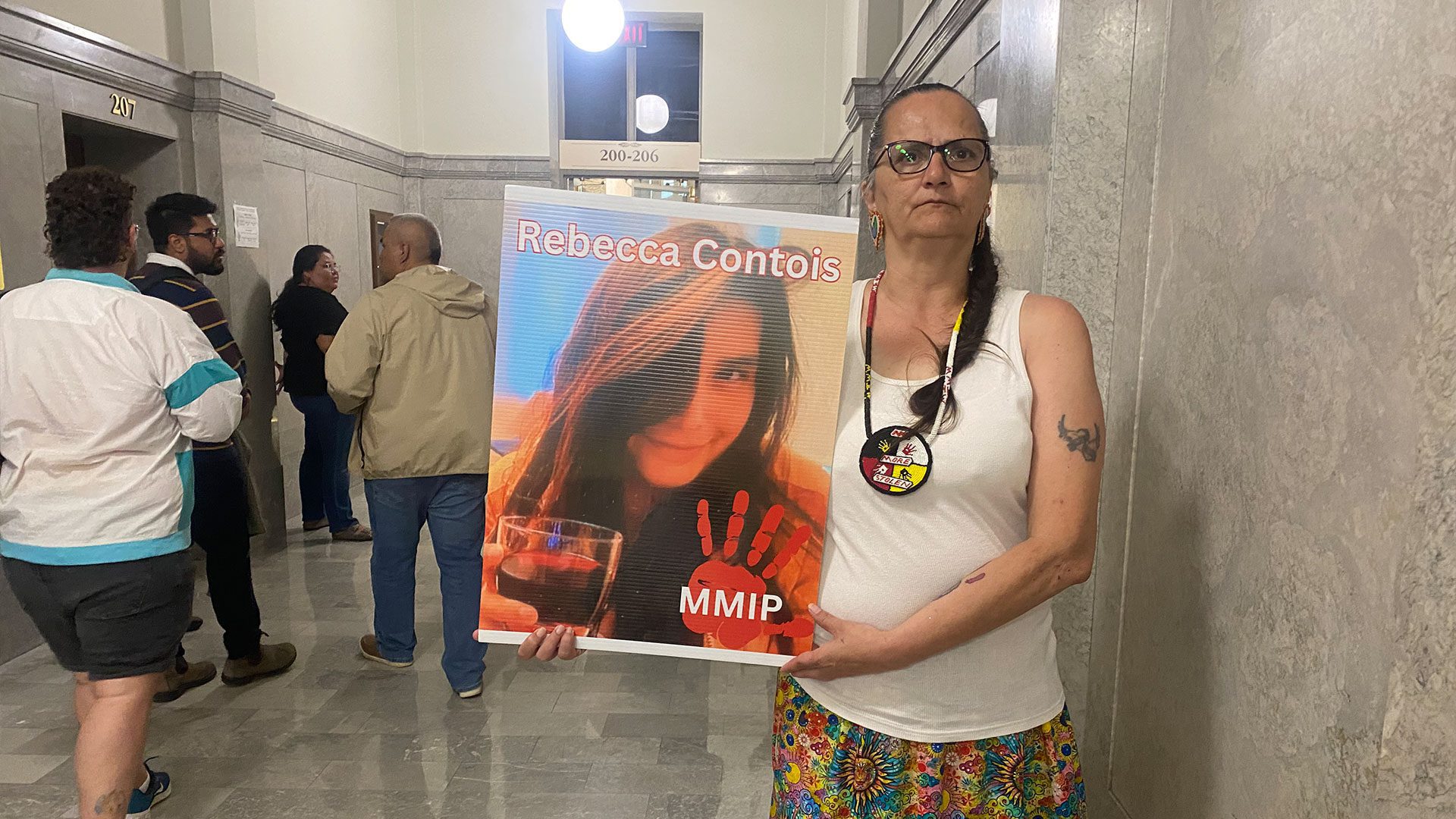A man who admitted to killing four women in Winnipeg but claimed he was too mentally ill to be held responsible has been found guilty of first-degree murder.
Defence lawyers had argued Jeremy Skibicki was suffering from schizophrenia at the time of the slayings in 2022 and should be found not criminally responsible and detained in a hospital.
Court of King’s Bench Justice Glenn Joyal said Thursday he agreed with the psychiatrist who testified for the Crown. The judge said Skibicki didn’t have a mental disorder that impacted his ability to know that the disturbing killings were morally wrong.
People in the packed courtroom cheered and clapped when the verdict came down. A sacred fire was lit outside the courthouse, where supporters continued with cheers.
Jorden Myran, a sister of one of Skibicki’s victims, Marcedes Myran, said she held back tears when the judge delivered the decision.
“I feel like a weight has been lifted off my shoulders,” she said outside court. “Justice was served today.”

A first-degree murder conviction carries an automatic life sentence with no chance of parole for 25 years. A date for a sentencing hearing, where the families of the victims can read statements, will be set for a later date.
Jeremy Contois, a brother of victim Rebecca Contois, said he was filled with mixed emotions after the verdict.
“We hope that it brings closure. It’s been a difficult two years.”
The judge said the “shocking and unsettling” case is emblematic of the issue of missing and murdered Indigenous women and girls in Canada.
The weeks-long trial heard Skibicki targeted the Indigenous women at homeless shelters, strangled or drowned them and disposed of their remains in garbage bins.

The killings came to light in May 2022 when a man looking for scrap metal found the partial remains of Rebecca Contois in a dumpster in Skibicki’s neighbourhood. More of her remains were discovered at a city-run landfill the following month.
During a police interrogation, Skibicki admitted to killing Contois and the three other women. He said the killings were racially motivated and cited white supremacist beliefs.
Court heard horrific details about the killings of the women: Myran, 26; Morgan Harris, 39; Contois, 24; and an unidentified woman an Indigenous grassroots community has named Mashkode Bizhiki’ikwe, or Buffalo Woman.
Contois was from O-Chi-Chak-Ko-Sipi First Nation, and Harris and Myran were from Long Plain First Nation. All three were living in Winnipeg when they were killed.
The only evidence police have pointing to the identity of Buffalo Woman is DNA found on the cuff of a woman’s jacket.

Dr. Sohom Das, who testified for the defence, said Skibicki felt compelled to kill the women because he was on a mission from God and heard auditory hallucinations coaxing him to kill.
Das said Skibicki knew at the time the killings were legally wrong but lacked the capacity to know they were morally wrong.
Court heard Skibicki has a history of mental illness, including depression, borderline personality disorder and thoughts of suicide. But he was not previously diagnosed with schizophrenia.
Dr. Gary Chaimowitz, who testified for the Crown, said Skibicki likely has anti-social and substance abuse disorders but did not have an active major mental health disorder at the time of the slayings.
Chaimowitz said he believes Skibicki was driven to kill because of his sexual interest in the dead. Court heard he committed sex acts on their bodies before disposing of their remains.
The Crown has said it doesn’t believe there are additional victims.
In 2022, police said they believed the remains of Harris and Myran were taken to another landfill outside the city but a search of that site would be too complex and dangerous.
There were countrywide protests demanding a search of the Prairie Green landfill. The federal and Manitoba governments recently committed a combined $40 million for a search, which is expected to start in the fall.
The federal government has a support line for those affected by the issue of missing and murdered Indigenous women and girls: 1-844-413-6649. The Hope for Wellness Helpline, with support in Cree, Ojibway and Inuktitut, is also available to all Indigenous people in Canada: 1-855-242-3310.










